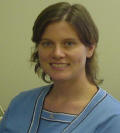Profiles in research: Diane Bates
Sociologist Diane Bates came of age when the links between development and the environment were becoming ever—and, in some cases, disturbingly—clearer. What engrosses her as a researcher is the way societies willfully ignore the limits imposed by their natural surroundings and then respond once they’ve tipped the balance.

Diane Bates

Sociologist Diane Bates came of age when the links between development and the environment were becoming ever—and, in some cases, disturbingly—clearer. What engrosses her as a researcher is the way societies willfully ignore the limits imposed by their natural surroundings and then respond once they’ve tipped the balance.
“I’m very interested in the fact that people go about their lives as if there were no environmental constraints, while all aspects of human civilization, from the economy to human health, are based on environmental inputs. We just pretend they’re not,” she says.
It is a phenomenon that transcends geography and culture, notes Bates, whose research has taken her from a struggling homesteading colony in the undeveloped Ecuadorian Amazon to contaminated neighborhoods in post-industrial Trenton. The common link, she adds, is that the poor and disenfranchised often bear the brunt of their society’s miscalculations.
In Ecuador, Bates has tracked environmental and demographic changes in the settlement of Sinai, a village of small farmers in the Amazonian basin. Established in the late 1960s by idealistic social planners, it began declining soon after. The region’s naranjilla crop succumbed to nematodes, or roundworms. Harvestable hardwood trees such as mahogany and cedar were quickly depleted. A third industry, cattle ranching, never really took off as the rainforest, rife with hoof-and-mouth disease and rabies, also proved inefficient for grazing.
“We call it a “hollow frontier,” says Bates, who has examined the role that environmental change played in villagers’ decisions to leave the region in search of work, as well as the cascading impacts of their outmigration.
“Within a generation, the homesteaders realized that the Amazon would not support their activities,” she said, adding, “You can make the same argument that we’re proceeding here in the developed world with the same lack of sustainability.”
For Bates, who balances duties as a professor and researcher with a passion for community involvement, New Jersey serves as a powerful case in point. And she is determined that her students understand the tug-of-war between development and environmental health by viewing conflicts such as the state’s black bear hunt, the impacts of flooding on old communities along the Delaware River, and pollution management in poor neighborhoods, close-up.
Several of her students, for example, worked closely with a grassroots community organization in Trenton that formed in response to the redevelopment of an elementary school in the neighborhood. Alerted by midnight deliveries to the site, residents began to suspect that the subcontractor was using contaminated fill at the school, and that set off a wider debate about how the construction project should proceed.
“This was a great environmental justice case study for my students,” Bates says. “They were able to interview officials from the state Department of Environmental Protection and the City of Trenton, to attend community meetings, and in the end, put together an impressive and well-received presentation for the community.”
The project turned out to be a launching pad for several planning and policy careers. A student who wrote her senior thesis on the conflict now works for the Trenton planning office. Another graduated from the Edward J. Bloustein School of Planning and Public Policy at Rutgers University and does research for a non-governmental organization based in Boston.
Bates is also a strong believer that the skills TCNJ students learn from their community involvements within a few miles of the campus are highly transferrable—to other countries, and even other languages. Last spring, she helped to establish a study abroad program in Granada, Nicaragua, in conjunction with the College’s Bonner Center for Civic and Community Engagement, academic officials, and the Center for Global Engagement.
“What these students would do in Trenton, they will do instead in Nicaragua,” she said, noting that in addition to taking courses in Spanish and sociology, they will work in some of Granada’s poorest neighborhoods at a community center, a residence for street children, and nursing home for abandoned elderly people.
And the joy of her job, Bates notes, “is the ability to work with dedicated students and colleagues to develop meaningful experiences both in the classroom and in the real world.”
Posted on November 4, 2011

